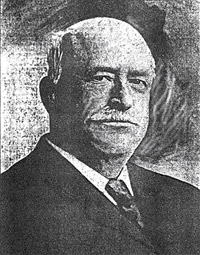The Lowell Cemetery is a non-municipal and non-denominational cemetery.
77 Knapp Ave, Lowell, MA 01852 | 978-454-5191
Freeman Ballard Shedd was born in Lowell, Massachusetts on December 29, 1844. He was the son of John and Asenath Shedd. After the death of his father in 1858, Freeman became the head of the Shedd home at the age of fourteen. He attended public schools in Lowell and during his time in high school, he worked for the druggist, E. A. Staniels whose shop was located at Middlesex and Gorham Streets.
At the age of seventeen in August of 1862, as the Civil War became a reality in Lowell, Freeman enlisted in the Massachusetts Regiment in Lynnfield, Massachusetts. Freeman began his military service as a Private in Company A and soon put his pharmaceutical knowledge to use. He was promoted to Hospital Steward in May of 1863. When his service terminated in 1865 at the age of twenty, he had experienced three years of active war duty including several famous battles one of which was the Battle of Gettysburg. Freeman returned to Lowell and his job at Staniels’ Drugstore.
Freeman Shedd married Amy Rowe and had three children, two did not survive childhood. Their first born child was still-born. A son, Eli Hoyt Shedd died at the age of eight from cerebro spinal meningitis. Freeman erected a receiving chapel in 1890 in his memory in the Lowell Cemetery. The Shedd Receiving Tomb is still an active receiving tomb within the cemetery today.
Upon his return to Lowell, Freeman became personally and professionally acquainted with Eli W. Hoyt; their partnership and friendship lasted a lifetime. The firm of E. W. Hoyt, makers of Hoyt’s German Cologne, was one of the first companies to use advertising cards. Freeman Shedd designed the labels and wrote the copy. With the distribution of the “cologne card” their product soon spread beyond the city of Lowell and the state of Massachusetts. By 1877, Hoyt’s German Cologne was internationally known. At the age of thirty three years old, Freeman Shedd was a 19th century entrepreneur.
Freeman Shedd, the Lowell businessman and philanthropist, presented the city library with a huge Japanese Imari vase standing over five feet tall. This fine porcelain jar is located on the landing going up to the second floor’s Memorial Hall. It was the largest porcelain jar produced in Japan and was exhibited in the Columbian Exposition in 1901 and later at the Paris Exposition. It was made in Arita, Japan by Kanzo (the finest artisan of his time).
In 1910, Freeman Shedd presented the City of Lowell with a 50 acre tract of land adjacent to Knapp Avenue in the Belvidere section of the city. This land was to be used expressly as a park and playground for the residents of the city. A pair of massive granite pillars frame the entrance to Shedd Park at the corner of Rogers Street and Knapp Avenue declaring: “Shedd Playground A Gift to the City of Lowell by Freeman Ballard Shedd A.D. 1910”. Shedd continued to support many Lowell institutions including Lowell General Hospital for the establishment of the tuberculosis clinic in memory of his friend Eli W. Hoyt.
After his death in 1913, at the age of 69, the Shedd mausoleum was erected in the Lowell Cemetery. The mausoleum is a simple geometric form with substantial walls and a pitched roofline. It has a stepped ceremonial entrance and decorative bronze doors with bronze rosettes outlining each door.
